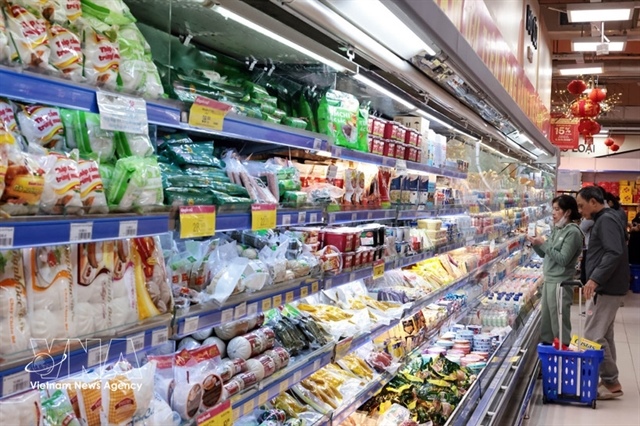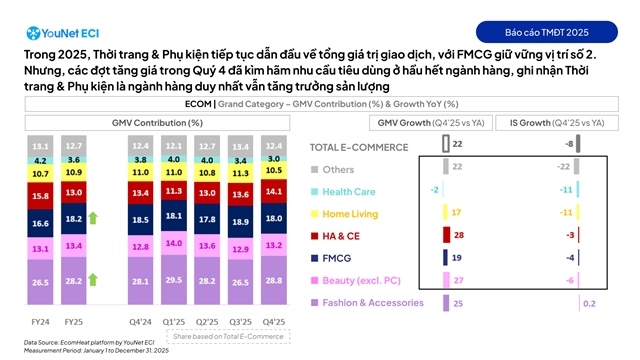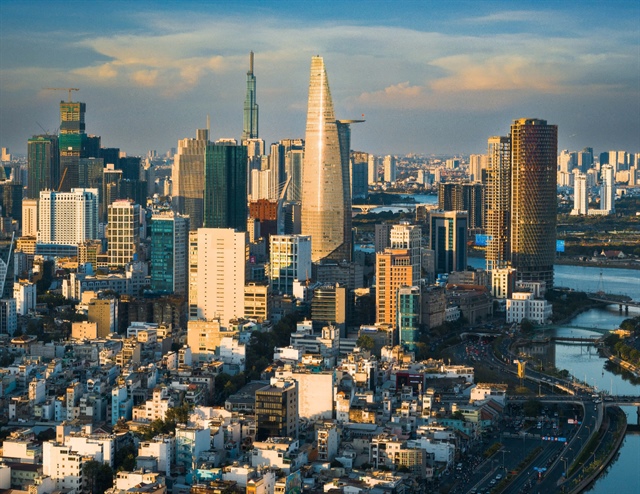Vietnam should give visa fee waiver to all tourists in Jul-Dec: official
Vietnam should give visa fee waiver to all tourists in Jul-Dec: official
Cross your fingers for Vu The Binh, deputy chairman of the Vietnam Tourism Association (VITA), who has called on the government to waive visa fees for all international tourists for the second half of this year.

Any international tourists who visit Vietnam between July and December should enjoy a zero visa fee, whereas local tour organizers who join a national campaign to boost tourism should pay zero value-added tax for one year, Binh suggested.
These solutions are crucial to improving Vietnam’s troubled tourism industry, which has repeatedly suffered declining tourist arrival numbers over the last 11 months, he said at a VITA conference held to work out “urgent solutions” to win back international tourists in Hanoi on Monday.
Vacationers currently have to meet strict requirements, complete complicated procedures and pay high fees to get a visa for their Vietnam trip, attendees said at the event, where relaxing visa requirements topped the agenda.
Vietnam waived visa fees for all international tourists in late 2009, when the country’s tourist arrival numbers were slumping, according to the VITA deputy chairman.
“The visa fee waiver then benefited more than 100,000 international holidaymakers and the arrival numbers surged 36 percent in 2010,” Binh added.
It is unclear, however, whether Binh and his association will lodge an official proposal for the visa fee waiver to the government or not.
But Vietnam’s visa rules are obviously contributing greatly to keeping tourists away from the country, according to industry insiders.
A holidaymaker must pay US$45 for their visa, a fee Nguyen Thi Van Anh, general director of Hanoi Redtours, said is relatively high compared to other countries in the region.
“This is not to mention that tourists in fact have to pay at least $100,” she revealed.
“Many customers of ours said they could not pay the fee directly but via an agent, and have to incur unofficial fees to be able to get a visa to Vietnam.”
Vietnam currently accepts a visa on arrival, which must be confirmed in advance, and has yet to launch any online visa system.
Tran Khang Thuy, chairman of the Exotissimo - Cesails Co. Ltd., said the visa on arrival procedure is not as simple as it seems.
“If there is only one flight with a couple of people who need to get a visa on arrival, the procedures run smoothly,” he said.
“But when there are two to three flights with more tourists, they have to wait for up to two hours to get the visas.”
The travel firms thus suggested that Vietnam gradually exempt visa requirements for its important markets, such as the EU countries or the Trans-Pacific Partnership participants.
The 11-member trade pact, excluding Vietnam, includes Australia, Brunei, Canada, Chile, Japan, Malaysia, Mexico, New Zealand, Peru, Singapore and the United States.
Binh, the VITA deputy chairman, also urged that Vietnam set up the online visa system to facilitate tourists.
ASEAN tourists are now exempt from visas when visiting Vietnam, as do those from seven other key markets, including Russia, Japan, South Korea, Denmark, Sweden and Finland.
“Waiving visas is the initial step in attracting tourists to Vietnam,” Binh said.
VITA thus proposed that the government continue waiving visas for vacationers from France, the UK, Germany and Australia, which are always in the top-ten of Vietnam’s largest sources of tourists, according to the official.
“Many French tourists wanted to come to Vietnam after their trips in Thailand but canceled the plan immediately after learning of our stringent visa rules,” he said.
Vietnam’s tourism expanded 34.8 percent in 2010, but the pace cooled down to only 4 percent last year, and minus 12.9 percent in the first four months of this year, according to VITA figures.




















